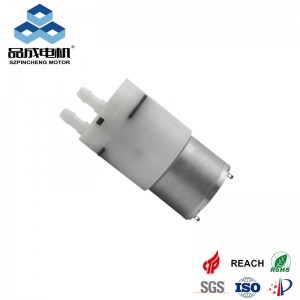A comprehensive survival guide for small workshops encompasses several pivotal elements. When it comes to space optimization, particularly in confined environments, the guidance provided can be a lifesaver. Take, for example, a woodworking micro-workshop nestled in the heart of a busy city, where every square inch of space is precious. Implementing mobile machinery is a transformative strategy. Fitting table saws, dust collectors, and workbenches with mobile bases or locking casters enables dynamic reconfiguration of the workspace. For instance, during the assembly phase of a large furniture project that demands ample open space, the table saw can be smoothly rolled away, and the workbench repositioned, swiftly creating an ideal setup for seamless workflow.
Smart storage solutions are equally essential. Long lumber pieces can be stored vertically against a wall, using a simple yet effective slat - wall system. This not only saves floor space but also makes it easier to access different lengths of wood as needed. Sheet goods can be stored on adjustable shelves, and offcuts can be sorted into labeled bins for future small - scale projects or repairs.
When it comes to operations, efficient project planning takes center stage. Choreographing tasks in a shared central area is a key strategy. Take a scenario where a small metalworking workshop is working on multiple orders. First, using a handheld grinder on a sturdy sawhorse platform for rough - shaping metal components can be done in an open part of the workshop. Then, moving a precision milling machine into place for the final, detailed cuts. This sequential approach maximizes the use of space and equipment, reducing downtime between tasks.
Cost - effectiveness is a linchpin of the survival guide.
To save on procurement, small workshops should build long - term relationships with suppliers. By placing bulk orders, they can often secure significant discounts on raw materials. For example, a pottery workshop might buy large quantities of clay, which not only lowers the per - unit cost but also ensures a consistent quality supply. Additionally, exploring alternative suppliers and engaging in competitive bidding processes can lead to better deals.
Inventory management is another area ripe for cost - savings. Maintaining a lean inventory is crucial. A small electronics repair shop, for instance, should only stock the most commonly used components. By accurately forecasting demand based on past repair records and market trends, they can avoid overstocking, which ties up capital, and understocking, which can lead to lost business opportunities. Implementing inventory management software can provide real - time visibility into stock levels, further optimizing this process.
Optimizing equipment usage is also important. Regular maintenance of tools and machinery is essential. A well - maintained lathe in a woodworking shop, for example, will operate more efficiently, reducing the risk of breakdowns and costly repairs. Furthermore, sharing equipment with other local workshops during periods of low usage can significantly cut down on idle time and associated costs. This collaborative approach not only saves money but also fosters a sense of community within the local business ecosystem.
In the face of fierce competition, small workshops can carve out a niche for themselves.
A jewelry - making small workshop might target customers who are passionate about sustainable and ethically - sourced materials. By using recycled metals and conflict - free gemstones, they can attract a specific segment of the market that values environmental and social responsibility. Differentiated services, such as offering custom - designed jewelry consultations where customers can be part of the creative process from the initial sketch, set them apart from larger, more impersonal jewelry retailers.
Building a good reputation through word - of - mouth is an investment that pays dividends.
A small pottery workshop that consistently delivers high - quality, hand - thrown ceramic pieces and provides excellent customer service, like personalized gift - wrapping for orders, will find customers recommending them to their friends and family, thus growing their customer base organically.
Finally, embracing new technologies, even on a small scale, can be a boon.
A graphic design small workshop can use cloud - based project management tools to collaborate more effectively with clients and team members. This allows for real - time feedback on design concepts, reducing the need for time - consuming in - person meetings. Online platforms for marketing and sales, such as setting up an e - commerce store on Etsy for handmade goods, can also open up new revenue streams and reach a global customer base that was previously out of reach.
If you are looking for a reliable partner for micro - motors, Pincheng Motor is your ideal choice. We are dedicated to providing you with top - notch products and excellent services. Contact us today to explore how we can collaborate and meet your business needs.




